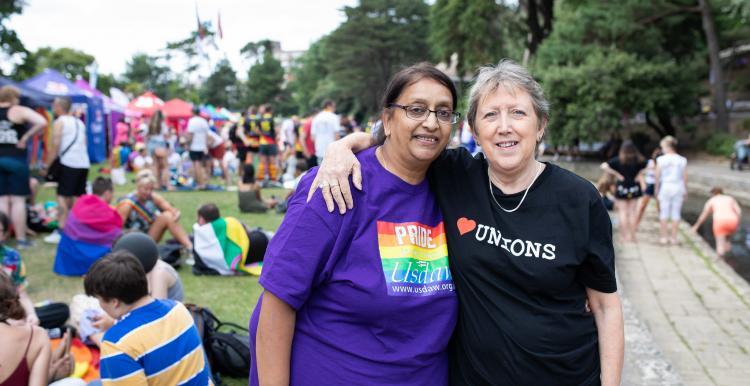How to access mental health support if you're lesbian, gay, bisexual or transgender

Members of the LGBTQ+ community are more than twice as likely to have a mental health disorder or experience depression and anxiety. Poor mental health may be linked to experiences of discrimination, homophobia, transphobia, bullying, social isolation or rejection due to your sexuality.
It might not be easy, but getting the right help and support is essential.
What help is out there?
There is lots of advice and support out there for you.
Talking with a therapist who is trained to understand your specific situation may help if you:
- Have difficulty accepting your sexual orientation.
- Need help coping with other people’s reactions to you.
- Feel like your body doesn’t reflect your true gender.
- Are currently transitioning.
- Are trying to cope with bullying or discrimination.
- Are feeling depressed, have low self-esteem, are thinking suicidal thoughts or thinking about harming yourself.
There are different types of talking therapies, so you can find one to suit your needs. Treatments available on the NHS include:
- Cognitive behavioural therapy (CBT).
- Guided self-help.
- Counselling.
- Mindfulness-based cognitive therapy.
Read more about talking therapies
When should I get help?
You should be able to get help as soon as you feel like you need it. There are currently long waiting times for NHS services, so don’t wait until you feel at a crisis point to reach out for help.
If you feel at a crisis point already, you can always contact the Samaritans 24 hours a day, seven days a week.
Call 116 123
Email jo@samaritans.org
If you are experiencing an emergency or feel like your life might be in danger, please call 999
Who can I contact for help?
You can always try talking to your GP for help. They will know what support is available locally and refer you to NHS therapies if needed.
There are also support organisations you can talk to who offer specific mental health advice for people in the LGBTQ+ community:
- Consortium - supporting projects around the country.
- Galop – advice and support for people who have suffered hate crime, sexual violence or domestic abuse.
- Gendered Intelligence - offers advice on gender diversity and improving the lives of trans people.
- LGBT Hero Forums – provide a safe space to talk about life issues.
- LGBT Foundation – offers talking therapy programmes.
- Mermaids – offers a helpline and web chat services supporting transgender people and parents of transgender children.
- Mind LGBTQ – mental health support from Mind specifically for LGBTQ+ people.
- MindLine Trans+ - mental health support line for people who identify as transgender, agender, gender fluid and non-binary.
- Mind Out - mental health service run by and for lesbians, gay, bisexual, trans and queer people.
- Pink Therapy – online directory of therapists who specialise in the LGBTQ+ community.
- Stonewall – LGBTQ+ charity, who provide advice on a range of topics.
- Support U – confidential support phone lines for advice and information.
- Switchboard LGBT+ Helpline – listening service via phone, email and online chat.
- THT Direct – offering sexual health advice and information.
- Imaan – supporting LGBTQ+ Muslims.
Have you accessed mental health services?
If you have accessed, or tried to access mental health services recently, then we want to hear about your experiences. Were you able to get the help and support you needed?